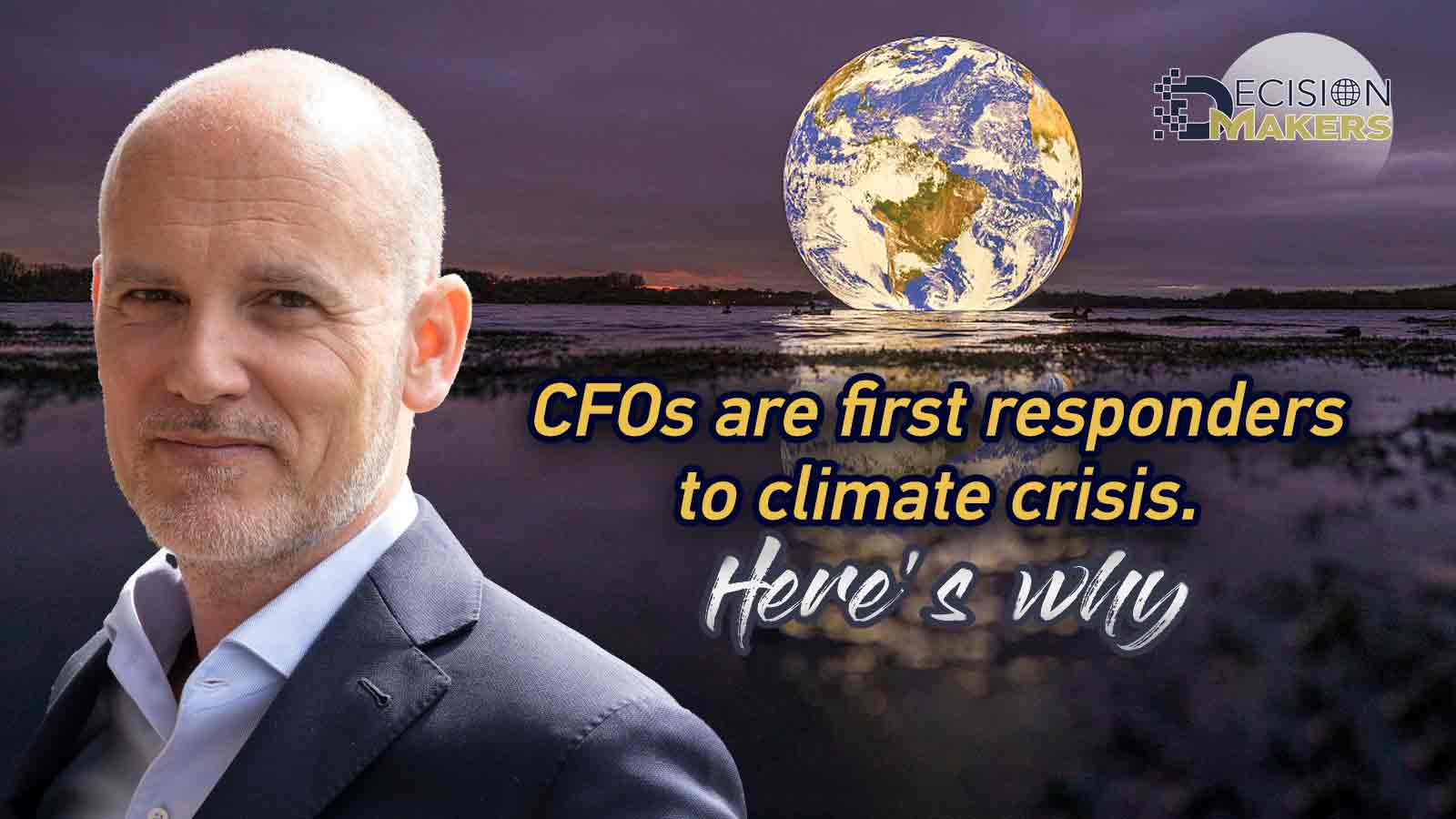
Editor's note: Decision Makers is a global platform for decision makers to share their insights on events shaping today's world. Julien Gattoni is the managing director and chief financial officer at the World Economic Forum. The article reflects the author's opinions and not necessarily the views of CGTN.
We know sustainability has much value, but it's difficult to determine how to quantify it. We also know that sustainability is becoming a core part of the business model in regards to expectations from investors and customers, along with increasing pressure from regulators, all of whom are demanding that business steps up and plays its part to address the climate crisis.
This makes chief financial officers (CFOs) the first responders in tackling climate change. Today's CFOs already likely sit at the nexus of all the key conversations about sustainability, acting as the honest broker in pursuit of net zero while also answering to market requirements and expectations. A CFO has emerged as master of the company's data, processes and reporting, and as it becomes ever-clearer that a company's worth goes beyond what the financial data captures, it is incumbent on them to address how to measure and report this added value.
Yet many CFOs are struggling to translate corporate environmental, social and governance (ESG) commitments into something much more tangible.
How do you measure the direction of travel?
Innovation and being at the cutting edge of finding solutions to the world's biggest problems are part of the World Economic Forum's DNA. Sustainability is no different, and as we learn, we've shared – and continue to share – our experiences. Last year was the first year that we published a Stakeholder Capitalism Report, which worked well as its own section within the organization's wider Annual Report.
To produce it, we used the ESG criteria and Stakeholder Capitalism Metrics, which the Forum produced in 2021 with the Big Four accounting firms and through consultations with more than 200 companies. The metrics offer a universal method in which companies can report on their sustainability, producing verifiable and comparable data.
Already it's evident that no one size fits all and that each industry will move at its own pace in the face of varying challenges and opportunities. Accordingly, we have focused on embedding new metrics into our reporting, as well as kept developing and refining them by adding "granularity." Alongside this, we're enhancing our skillsets, with the Finance team expanding to include people with impact-measurement skills.
Davos 2022 – a net zero event
The World Economic Forum Annual Meeting has become a sort of test bed for our sustainability thinking and metrics. We use measurable targets that get continually developed, from which we are now in a position to chart quantifiable, year-on-year progress.
In the first tangible manifestation of this, we secured ISO 20121 accreditation in 2018. The process didn't stop there. At each Annual Meeting we are audited, we have dedicated resources in our Finance team working with the certification company to ensure that we can maintain our certification, and progress beyond it annually.
We work with event teams to ensure the greenest choices are made in terms of materials used (and reused), food sourced, and minimal waste produced, the aim being to reduce the percentages for each of these at every meeting, while continuing to deliver the high-quality experience that participants expect.
The media frequently reports on the transport required to travel to, from and around Davos. What the headlines don't capture are the far less glamorous hours that we spend working with Zurich airport's authorities to ensure a sustainable fuel option is available for those travelling by air, the work we do to encourage participants to travel by train, and the fleet of zero-emission vehicles employed at the event itself.
Finally, we invest to offset against the event's remaining carbon emissions, helping make the Annual Meeting a net-zero success story.

The World Economic Forum Annual Meeting 2022 kicks off in Davos, Switzerland, May 23, 2022. /VCG
The World Economic Forum Annual Meeting 2022 kicks off in Davos, Switzerland, May 23, 2022. /VCG
What have we learned in the past year about measuring and reporting sustainability metrics? We have gained greater insights by producing our first Stakeholder Capitalism Report. While the process remains a work in progress, we've learned the significance of identifying, honing and consistently reporting on our metrics.
The bottom line? Sustainability is vital to long-term profitability
We can't yet monetize non-financial data, but we need to find a means of measuring the ESG's impact. Over time, as we figure this out, we'll arrive at a place where we have two profit and loss statements, one for finance and the other for impact.
This stands bright on the horizon and there's much ground to cover in between. The conversation is getting easier; there's enough evidence to show that a sustainable business model could be a more profitable one, which is a marked change to the debate before the pandemic.
It is now incumbent on the CFOs to rise to the challenge, and it's a big, complicated, largely unknown challenge – think three-dimensional chess. The CFOs will be required, by turns, to be champions, pioneers and sponsors of sustainability. Why?
The bottom line is that the CFOs' remit is the bottom line, and for some the ESG represents a "triple bottom line:" sustainability is vital to long-term profitability, making it the CFOs' work to figure out how to address and measure its impact.
(If you want to contribute and have specific expertise, please contact us at opinions@cgtn.com. Follow @thouse_opinions on Twitter to discover the latest commentaries in the CGTN Opinion Section.)

